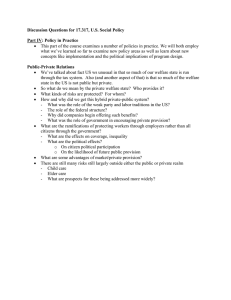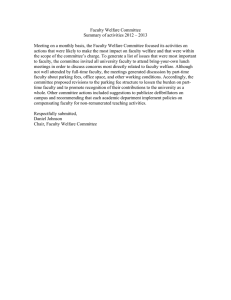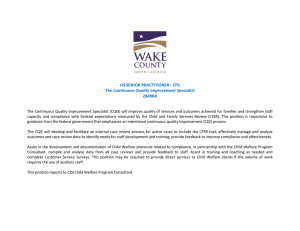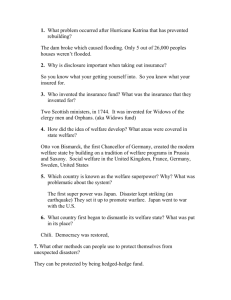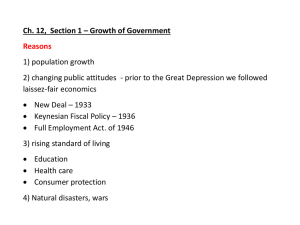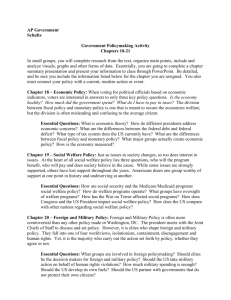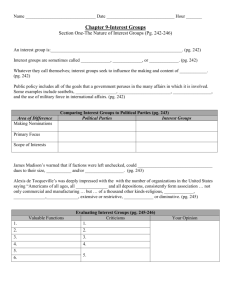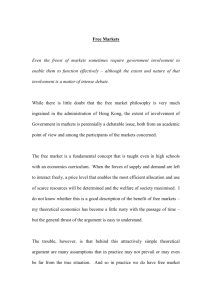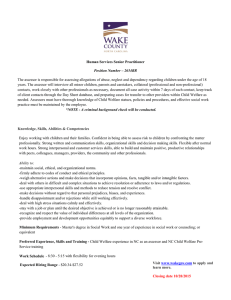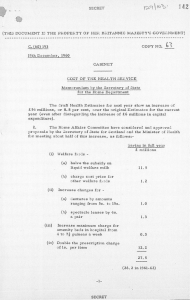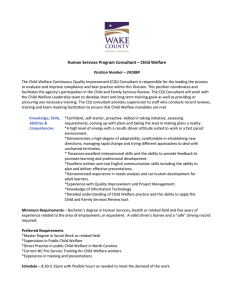Halfmann 185 ECO.doc - Sociology Department at UC Davis
advertisement
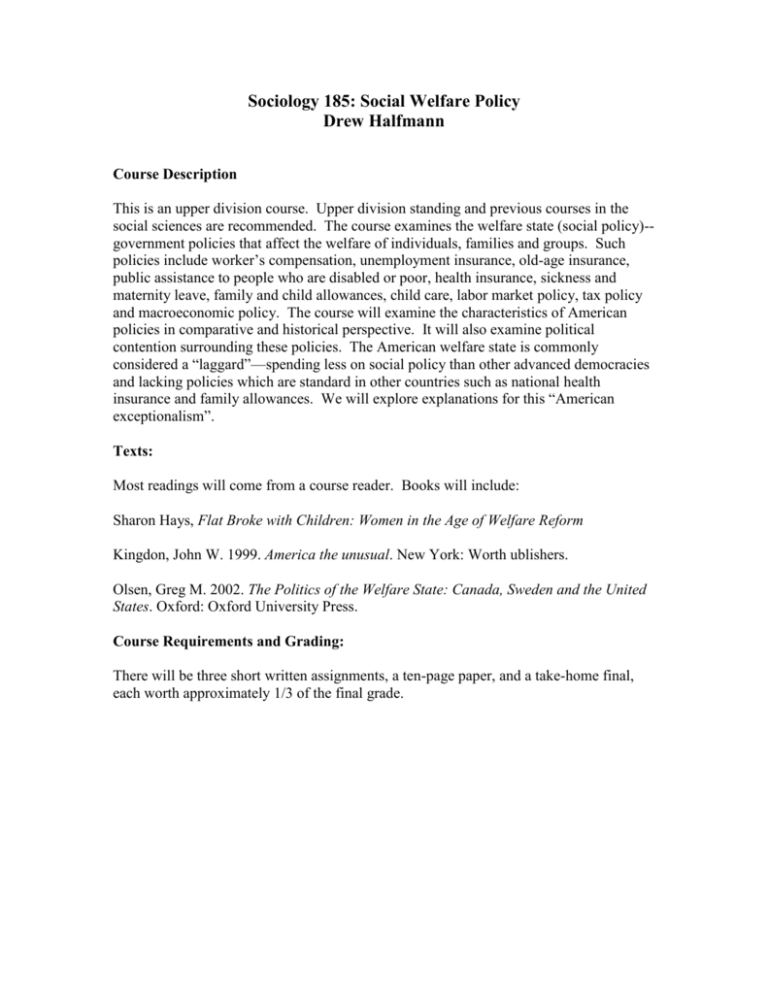
Sociology 185: Social Welfare Policy Drew Halfmann Course Description This is an upper division course. Upper division standing and previous courses in the social sciences are recommended. The course examines the welfare state (social policy)-government policies that affect the welfare of individuals, families and groups. Such policies include worker’s compensation, unemployment insurance, old-age insurance, public assistance to people who are disabled or poor, health insurance, sickness and maternity leave, family and child allowances, child care, labor market policy, tax policy and macroeconomic policy. The course will examine the characteristics of American policies in comparative and historical perspective. It will also examine political contention surrounding these policies. The American welfare state is commonly considered a “laggard”—spending less on social policy than other advanced democracies and lacking policies which are standard in other countries such as national health insurance and family allowances. We will explore explanations for this “American exceptionalism”. Texts: Most readings will come from a course reader. Books will include: Sharon Hays, Flat Broke with Children: Women in the Age of Welfare Reform Kingdon, John W. 1999. America the unusual. New York: Worth ublishers. Olsen, Greg M. 2002. The Politics of the Welfare State: Canada, Sweden and the United States. Oxford: Oxford University Press. Course Requirements and Grading: There will be three short written assignments, a ten-page paper, and a take-home final, each worth approximately 1/3 of the final grade.

